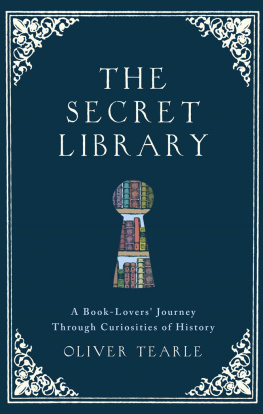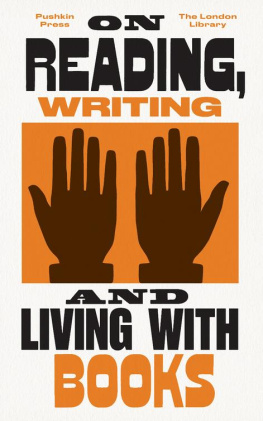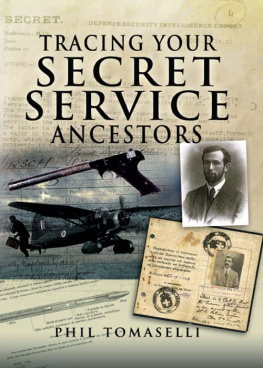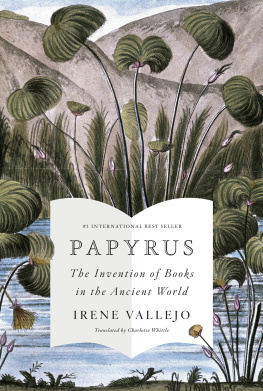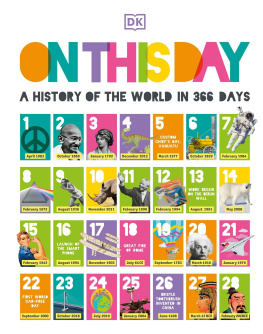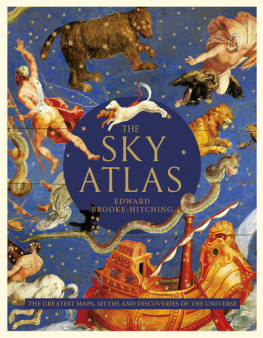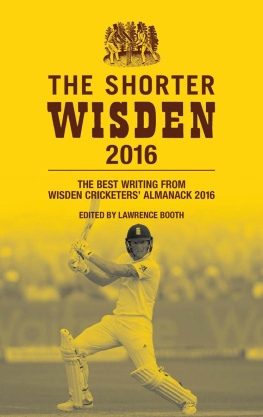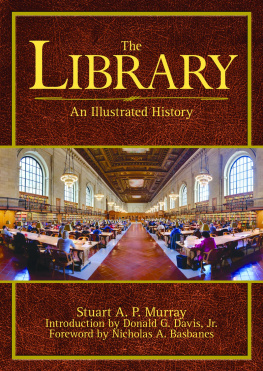
First published in Great Britain in 2016 by
Michael OMara Books Limited
9 Lion Yard
Tremadoc Road
London SW4 7NQ
Copyright Oliver Tearle 2016
All rights reserved. You may not copy, store, distribute, transmit, reproduce or otherwise make available this publication (or any part of it) in any form, or by any means (electronic, digital, optical, mechanical, photocopying, recording or otherwise), without the prior written permission of the publisher. Any person who does any unauthorized act in relation to this publication may be liable to criminal prosecution and civil claims for damages.
A CIP catalogue record for this book is available from the British Library.
ISBN: 978-1-78243-557-0 in hardback print format
ISBN: 978-1-78243-558-7 e-book format
Cover design by Anna Morrison
www.mombooks.com

When asked once what book hed like to have with him on a desert island, G. K. Chesterton replied: Thomass Guide to Practical Shipbuilding. Such a witty retort probably raised smiles but meant he never got invited back onto Desert Island Discs. Yet Chestertons quip does remind us of the plain but often forgotten fact that book neednt mean great work of literature or novel youve always wanted to read but have never had the time or courage to take on. A book can be of an altogether more pragmatic kind, yet its importance to the history of Western society might be extensive.
Take Euclids Elements, a classical textbook written over two thousand years ago. Few bookworms probably take Euclid to bed with them after a long day at work, but the influence of the Elements is immeasurable (somewhat ironically, given its subject). Similarly, few readers probably sink into a hot bath with Dr Johnsons Dictionary of an evening, but every dictionary written since, from Websters in America to the astounding achievement that is the Oxford English Dictionary, owes some sort of debt to it. Such books reflect the age that produced them but have also helped to shape the course of cultural and intellectual development ever since. That is what this book is about.
Indeed, The Secret Library sets out to explore, and to attempt answers to, some of the book-related questions Ive been curious about for a while. Some of them are questions Ive already attempted to answer on my blog, Interesting Literature: A Library of Literary Interestingness. But most of them, especially those involving non-literary texts, are new to this book. What did Euclid do that was so groundbreaking and important? Has science fiction ever accurately predicted the future? Who wrote the first cookbook? Were the Victorians really a bunch of prudes and were their novels truly shy around the trouser area?
The Secret Library tries to find answers to these and other questions. It has two related aims: to bring to light the lesser-known aspects of well-known books, and to show how obscure and little-known books have surprising links with the familiar world around us. It seeks strangeness within the familiar, and familiarity within what is otherwise strange. In short, it attempts to bring to light some hidden facts about both the best-known and the least-known books ever written, typed, inscribed, dictated or, indeed, fabricated.
Dig a bit deeper into the world of books, and you find all sorts of untold stories. Everyones heard of the classical Greek poet Homer, but what about the writers who parodied him? Edgar Allan Poes short stories are justly celebrated, but few know the rather surprising book indeed, the only one of his books that sold well in his own lifetime. We all know that Shakespeare wrote a play called Hamlet, but he wasnt the first playwright to do so. It is with such overlooked books, which have slipped behind the back of the library shelves and become largely forgotten, that this book is particularly concerned. But sometimes a well-thumbed tome comes under the spotlight too: I wouldnt claim that Dantes Divine Comedy was an obscure book, but how many people have actually read it? Consequently, its more, er, flatulent moments are one of medieval literatures best-kept secrets.
The Secret Library is not intended as a list of the ninety-nine most influential books ever written or a compilation of ninety-nine books everyone should read not least because several of the books I discuss havent survived into the modern age, and one of them probably never even existed in the first place. (All will be explained in due course.) Instead, its a medley of curiosities, a whistle-stop tour around an imaginary library stuffed full of titles both familiar and forgotten. Each of the books I discuss tells us something about the age that produced it. And, collectively, they provide some intriguing answers to the questions I just mentioned.
This book is organized into nine chapters, roughly covering the major historical and cultural periods from antiquity to the present day: the ancient world, the Middle Ages, the Renaissance, and so on. After the mid-seventeenth century everything became a bit more interesting and complicated, not least because a new land known as America began to publish books at this time. I tell the history of Americas bookish development over the seventeenth, eighteenth and nineteenth centuries in a separate chapter; the same goes for similar developments on the Continent. Everyone regroups for the final chapter, which takes the twentieth-century age of Western modernity as its focus.
One final thing before we embark on our library tour. In each of the nine chapters, every single entry is linked to the previous one in some way. Sometimes the connections between two books will be obvious; sometimes they will take a bit longer to discern. But they are there. I hope you enjoy looking for them as much as I did.
Oliver Tearle

The legacy of the classical world is all around us: democracy, theatre, lyric poetry, the Olympics and a fair bit of philosophy and architecture have their roots in ancient Greece. But on a smaller level, too, we inhabit a world created by our classical forebears. Take the language we use, such as the Latin phrases still in common use: carpe diem (seize the day, from the poet Horace) or in vino veritas (in wine there is truth, from Pliny the Elder). In England, most people carry a piece of The Aeneid about with them every day: the line decus et tutamen (an ornament and a safeguard), taken from Virgils poem, is inscribed around the edges of pound coins. American money, too, bears a Latin phrase: E pluribus unum (out of the many, one) dates back to another text that has been attributed to Virgil. (Pleasingly, its a pesto recipe.)
This all the more impressive since many works of classical literature, philosophy, science and mathematics havent survived. Just imagine if some of the classical works that didnt make it into the modern age were still with us. Think what riches we would possess if we had all one hundred or so of Sophocles plays, rather than the mere seven that have been preserved. Nobody can study Aristotles theory of comedy, the second part of his book the Poetics, on a university literature course, for the simple reason that no copy of the work has survived.
Given that books are the bread and butter of the book you now hold, it seems fitting to begin with the ancient world, since it was there that the book itself was effectively invented. The oldest book comprising multiple pages (that is, not simply a big scroll) is often said to be the Etruscan Gold Book, which was produced around 2,500 years ago. It comprises six large sheets of 24-carat gold which have been bound together with rings, thus forming a unified object that might be labelled a book. It was only discovered in the mid-twentieth century; unfortunately, as it was written in the Etruscan language, which we know very little about, deciphering it proved tricky, to say the least. To this day, we have no idea what it says.
Next page
